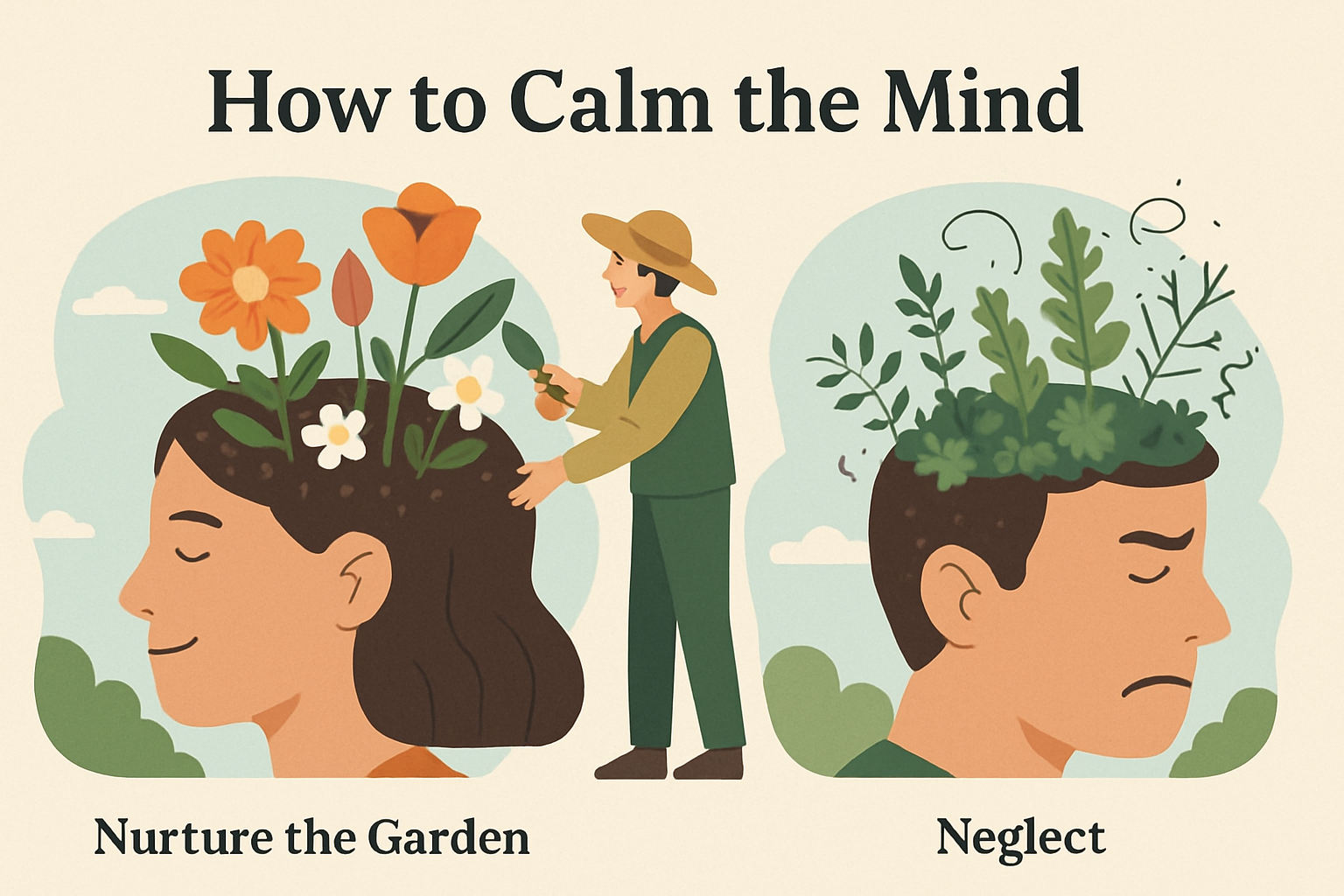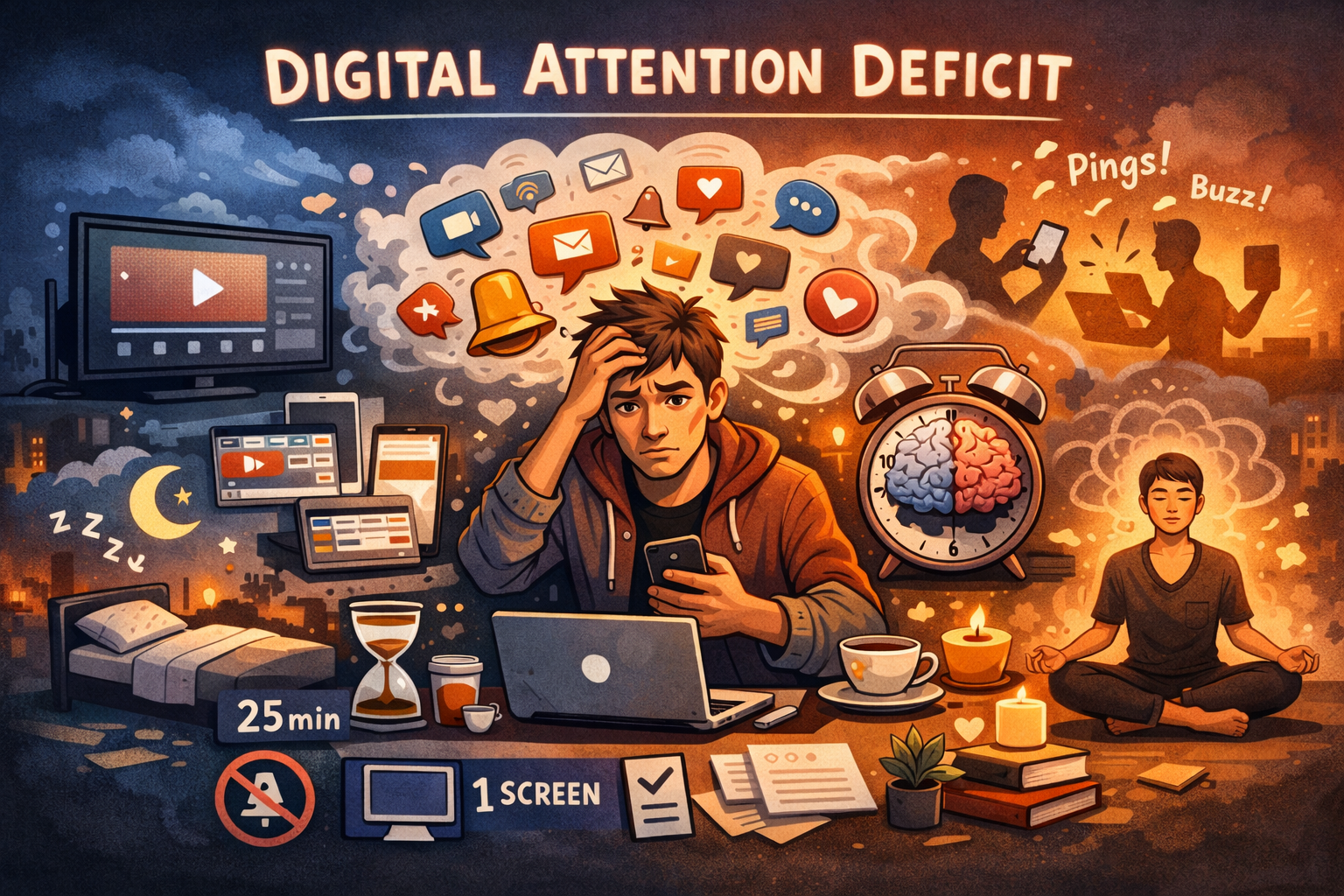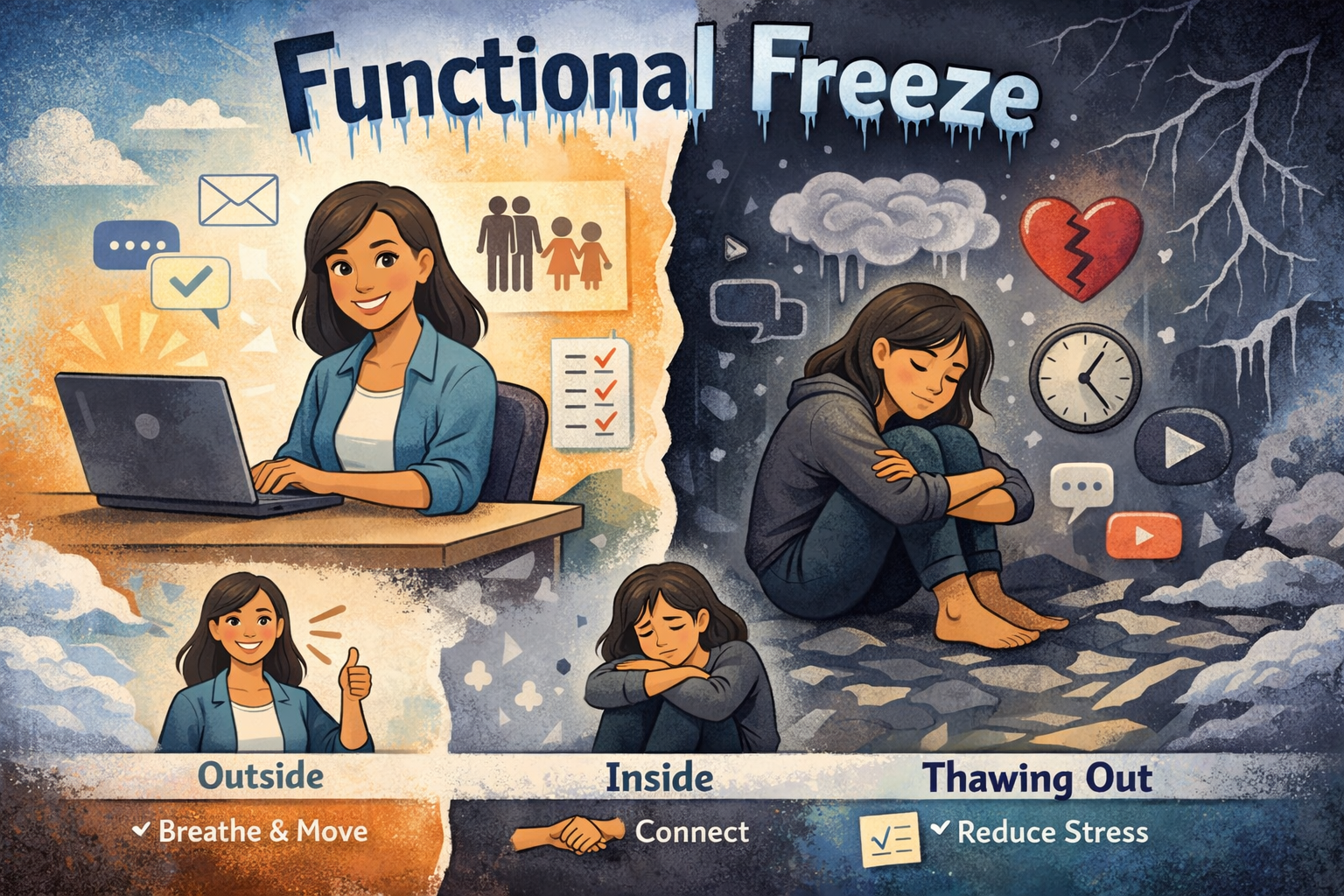Our mind functions just like that of a garden, where continuous attention is required for its robust growth. Flowers bloom; branches will continue to develop effortlessly. On the other hand, if we neglect care and sustained attention, weeds, and toxic herbs, representing negative, disturbing, and obsessive thoughts, will grow and disturb the ecosystem. Neglecting the proper and regular maintenance of our 'mind' garden will allow negativity of thoughts (weeds) to proliferate and restrict our joy, happiness, and well-being.
The frequent arising of negative thoughts, no doubts, harms our emotional state by experiencing persistent worrying, stress, distress, and anxiety, which deteriorates our mental health. Learning to recognize and handle mental "weeds" can surely and positively result in enhancing our mental health.
Understanding Negative Thoughts
Our mind generates negative thoughts as a built-in survival mechanism. During the primitive age, humans needed to stay, all the time, vigilant to threats so that they could focus their minds on potential threats and impending dangers. Ironically, modern-age humans maintain the same kind of instinct-based threat detection system, though we do not require it to protect ourselves from those kinds of dangers like predators and wild animals.
Dr. Rick Hanson explains that our brains develop a stronger inclination for negative experiences while ignoring positive ones. Negative thoughts are generally sticky in nature. They do not go away easily from our thinking mind. In fact, our natural tendency is to entertain such disturbing thoughts and experiences. To control them, we require intentional and conscious thinking to change our habitual patterns.
Why Calming Our Mind Matters
A mind filled with negativity along with fear and anxiousness creates chronic stress that leads to poor sleep and low mental energy. Research shows that repeated negative thinking patterns make people more likely to develop mental health problems, especially depression and anxiety. Body inflammation becomes worse, according to a 2017 Frontiers in Psychology study, when people repeatedly experience negative thoughts.
The practice of mental calmness offers numerous advantages for our mental health.
Think more clearly: Mindfulness leads to improved emotional health and better ability to concentrate and focus.
Improve our mood: Through this practice we can enhance our concentration abilities as well as improve our decision-making and build stronger connections with others.
Build stronger relationships
1. Become aware of how our thoughts operate.
We cannot change our thoughts unless we become aware of them. Awareness is the first crucial step to managing our thought patterns. First and foremost, start observing our thoughts with an open mind. Daily journaling for a brief period allows us to recognize repeated negative patterns, which may consist of the following:
- Catastrophizing: "Everything will go wrong."
- Black-and-white thinking: "I always fail."
Most people view every occurrence through their own unique filters. "It's my fault this has happened." The awareness we develop enables us to shift from automatic reactions to purposeful responses.
2. Practice Deep Breathing Exercises
Our thinking mind sets the pace for our body to follow. Deep breathing techniques allow our nervous system to enter a relaxed state. We can follow this basic breathing technique:
- Breathe in slowly through our nose for 4 seconds.
- Hold our breath for four seconds.
- Release the air through our mouth at a relaxed pace for 6 seconds.
- Repeat for 2–3 minutes
This method activates the "rest and relax" state of the parasympathetic nervous system.
Harvard Medical School researchers demonstrate that controlled breathing techniques help reduce anxiety and promote relaxation.
3. To experience positive self-talk through conscious effort.
Our brain shows negative thoughts mainly through internal dialogue, which includes self-criticism. We need to change our inner dialogue by speaking more empathetically and positively. We can turn the phrase "Oh, I made a mistake" into "I made a mistake, but I have learned something valuable."
We should treat our self-talk in the same manner as we would speak to our loved ones, according to Brené Brown.
The basic affirmations "I am enough" and "This feeling will pass" serve to guide our mental conversations toward peaceful understanding.
4. Challenge and Reframe Negative Thoughts
We should try to reframe our thoughts, as the same set can be rephrased in different ways depending upon the way we perceive and interpret the experience.
Consider multiple viewpoints by asking if there exists an alternative way to look at the experience or situation. The way we understand things can differ from one perspective to another.
Would I say this to my friend who experienced the same situation?
Cognitive Behavioral Therapy (CBT) demonstrates its effectiveness through its fundamental practice, which helps clients manage negative thinking.
5. Practice Mindfulness
During mindfulness practice, we try to focus on the present moment, refrain from passing judgment, and avoid assigning any meaning. We should observe thoughts without involving ourselves deeply in the story. Observe the things as they are—in a non-judgmental way.
Mindfulness functions as a basic skill that enables people to focus on what exists in the current moment. Being mindful serves as an efficient method to handle thoughts that produce negativity.
According to JAMA Internal Medicine research in 2014, mindfulness meditation reduces symptoms of anxiety and depression as well as stress levels.
We all can practice and learn mindfulness techniques in different ways. There are guided meditations on various online platforms such as Calm, Headspace, and Insight Timer to improve our present-moment awareness instead of experiencing mind-wandering.
6. Engage in Activities That Bring Joyful Moments
The most effective way to silence our minds involves shifting our attention to something new. Spend our time doing activities that bring us joy and happiness, such as nature walks, engaging in artworks like painting, listening to music, and getting busy with cooking and gardening. The activities help us achieve mental comfort and experience positive energy.
The philosopher Anne Lamott explains that "Almost everything will work again if you unplug it for a few minutes… including you."
7. Surrounding Ourselves with Positive Influences
Spend time with people who improve our mood. We should avoid meeting and interacting with those people who drain our energy. We need to choose social settings along with reading materials and conversations that boost our positivity.
Our mind reflects what it's fed. Feed it well.
Our goal is to live our life to the fullest—by maximizing our joyful and happy moments. That can happen when our mind is at peace, not getting disturbed and distressed by the outer world. We must know how to calm our mind, even when we are under stress, feeling anxious and sad, worrying, and passing through day-to-day challenges.
By taking small steps, we can train our brain to create a positive outlook towards our life while managing stress and mental distress.
"The peaceful state exists inside you. Do not seek it without." — Buddha
Try This Today:
Choose one method from this article to practice for five minutes. Short attempts will lead to major benefits regarding your mental calmness.
Are you looking for inner peace, deep relaxation or holistic solutions for mental health? Visit http://themindtherapy.in - your space for online counselling/therapy, free mental health tests, meditation, sound therapy etc.
Mind Therapy is India's trusted platform for mental health, mindfulness, and holistic healing. Explore expert-led programs, guided meditation, sound therapy and counselling at http://themindtherapy.in














